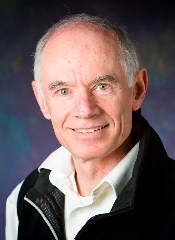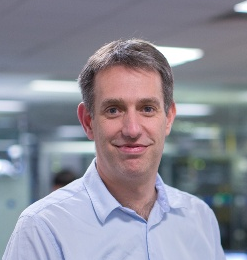Keynote Speakers

Dr. Yoram Bresler
Coordinated Science Laboratory, Department of ECE University of Illinois at Urbana-Champaign
Talk Title: Sparsity, Low Rank, and Learning - Data and Physics-Driven Models in Medical Image Reconstruction
Abstract:
Sparsity, data-driven learning of signal models, and low rank modeling, have emerged as powerful paradigms in image reconstruction. These paradigms are often differently motivated: limited data; the limitations of analytical models for images; and physical models of the signal generation or acquisition. We describe the application of these paradigms for image reconstruction in several medical imaging modalities: MRI, CT, PET, and optical. Highlights include the following: (i) blind compressed sensing - or data-driven learning of sparsifying transforms in MRI and CT reconstruction, which improves on approaches involving learnt synthesis dictionaries, at much lower computational cost; (ii) a combination of the underlying physics with sparse modeling, to enable a fast and accurate non-iterative solution to the non-linear inverse problem in optical imaging; and (iii) physics-based low rank object modeling in dynamic MRI and dynamic PET reconstruction.
Bio:
Dr. Yoram Bresler is a Professor of Department of Electrical and Computer Engineering, and Department Bioengineering at the University of Illinois, Urbana-Champaign. He received the B.Sc. (cum laude) and M.Sc. degrees from the Technion, Israel Institute of Technology, in 1974 and 1981 respectively, and the Ph.D degree from Stanford University, in 1986, all in Electrical Engineering. In 1987 he joined the University of Illinois at Urbana-Champaign, where he is currently a Professor at the Departments of Electrical and Computer Engineering and Bioengineering, and at the Coordinated Science Laboratory. Yoram Bresler is also President and Chief Technology Officer at InstaRecon, Inc., a startup he co-founded to commercialize breakthrough technology for tomographic reconstruction developed in his academic research. His current research interests include multi-dimensional and statistical signal processing and their applications to inverse problems in imaging, and in particular compressed sensing, computed tomography, and magnetic resonance imaging.
Dr. Bresler has served on the editorial board of a number of journals including the IEEE Transactions on Signal Processing, the IEEE Journal on Selected Topics in Signal Processing, Machine Vision and Applications, and the SIAM Journal on Imaging Science, and on various committees of the IEEE.
He received two Senior Best Paper Awards from the IEEE Signal Processing society, and a paper he coauthored with one of his students received the
Young Author Best Paper Award from the same society. His honors include the NSF Presidential Young Investigator Award, the Technion (Israel Inst. of Technology) Faculty Fellowship, the Xerox Senior Award for Faculty Research, University of Illinois Scholar, Associate at the Center for Advanced Study of the University, and Faculty Fellow at the National Center for Supercomputing Applications.
Dr. Bresler is a fellow of the IEEE and of the AIMBE.

Dr. Daniel Rueckert
Biomedical Image Analysis Group, Imperial College London
Talk Title: Sparsity, Dictionaries and Patches: Applications to Medical Image Reconstruction and Analysis
Abstract:
This talk will focus on the convergence medical imaging and machine learning techniques for the discovery and quantification of clinically useful information from medical images. The first part of the talk will describe machine learning techniques based on sparsity that can be used for image reconstruction, e.g. the acceleration of MR imaging. The second part will discuss model-based approaches that employ statistical as well as probabilistic approaches for segmentation. In particular, we will focus on segmentation techniques that combine patch-based approaches such as dictionary learning with sparsity to improve the accuracy and robustness of the segmentation approaches.
Bio:Daniel Rueckert is a Professor of Visual Information Processing in the Department of Computing, Imperial College London. He has founded and leads the Biomedical Image Analysis Group (BioMedIA), which currently has 9 post-docs and 18 PhD students. He has pioneered the development of non-rigid registration algorithms that have been successfully used in the breast, liver, heart and brain. Much of the research has been extensively disseminated to the academic community (see http://www.doc.ic.ac.uk/~dr for more details) In 2006 co-founded IXICO (www.ixico.com) to provide imaging analysis solutions for clinical trials and healthcare diagnostics. He has published more than 300 peer- reviewed publications. He is an associate editor of IEEE Transactions on Medical Imaging (TMI) and a member of the editorial board of Medical Image Analysis and Image & Vision Computing. He has served as a member of organising and programme committees at numerous conferences, e.g. he has been General Co-chair of MIUA 2004, MMBIA 2006, WBIR 2012 and FIMH 2013 as well as Programme Co-Chair of MICCAI 2009 and ISBI 2012.
